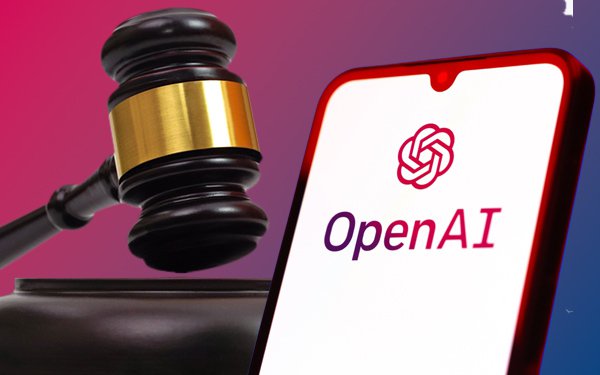
Publishing plaintiffs in the massive copyright suit against
OpenAI are hitting back at OpenAI's objection to a court order telling it to not delete data.
On May 13, Magistrate Judge Hon. Ona T. Wang ordered the company to “preserve
output logs and related information that would otherwise be slated for deletion.”
OpenAI has filed a memo challenging that order. But the so-called news
plaintiffs, including The New York Times,Daily News LP and the Center for Investigative Reporting, are answering the firm.
They
argue in a memo filed Tuesday that they are hampered by “the unavailability of significant tranches of historical evidence, which prevents them from accessing direct evidence that tells the
whole story about the way their content appears in the output of OpenAI products.”
advertisement
advertisement
They continue that this is “exacerbated by the fact that after News Plaintiffs
filed this litigation, OpenAI has implemented Plaintiff-specific ‘blocks and filters specifically designed to make it harder to elicit output containing or referencing News Plaintiffs’
copyrighted works.”
What’s the case about? “Since its inception, this case has been about Defendants’ misappropriation of millions of News
Plaintiffs’ articles for training their large language models and building generative AI products that can deliver those articles, or derivatives thereof, to users as output,” the
plaintiffs contend.
In the memo, the plaintiffs attempt to answer several of OpenAI’s arguments against Judge Wang’s protective order.
For one, OpenAI argued in its motion that “the Preservation Order is ‘contrary to law’ because preserving large portions of its output log data is too ‘burdensome’ for
a technology company that specializes in handling vast quantities of data, the plaintiffs report.
The plaintiffs seem to find this laughable. “OpenAI’s technological concerns for
compliance with the Preservation Order…appear to be overstated,” they answer. “OpenAI has admitted it is already retaining 'tens of billions of ChatGPT conversations' in the
ordinary course of business."
They add that “OpenAI does not dispute that it has already destroyed many of its user logs that would otherwise provide
primary evidence for News Plaintiffs’ output-based claims.”
For another, “OpenAI claims that this burden will also fall on its users, whose privacy will somehow be
invaded despite the fact that no data is leaving OpenAI and whose expectations will be upended despite OpenAI’s own privacy policy explaining retention of output log data is ‘subject
to” any legal requirements to retain such data. OpenAI’s preferred course of action to “protect its users’ data and privacy.”
Should OpenAI be
worried? The plaintiffs minimize the threat.
“Although OpenAI’s protests that it was forced ‘to retain all user content indefinitely going
forward,’ “the Preservation Order does no such thing,” the plaintiffs say. “Instead, Judge Wang made clear that the Preservation Order is narrow and will be limited
in both time and scope to avoid an undue burden on OpenAI, while at the same time ensuring relevant data is preserved so that it can be analyzed.”
We will eagerly
await OpenAI’s response.
The case is on file with the U.S. District Court for the Southern District of New York.